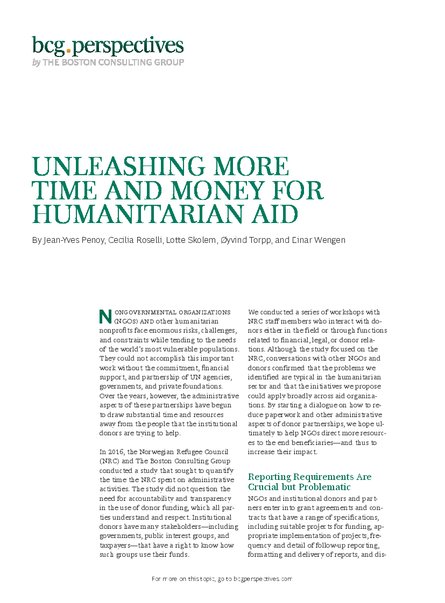
Nongovernmental organizations (NGOs) and other humanitarian nonprofits face enormous risks, challenges, and constraints while tending to the needs of the world’s most vulnerable populations. They could not accomplish this important work without the commitment, financial support, and partnership of UN agencies, governments, and private foundations. Over the years, however, the administrative aspects of these partnerships have begun to draw substantial time and resources away from the people that the institutional donors are trying to help.
In 2016, the Norwegian Refugee Council (NRC) and The Boston Consulting Group conducted a study that sought to quantify the time the NRC spent on administrative activities. The study did not question the need for accountability and transparency in the use of donor funding, which all parties understand and respect. Institutional donors have many stakeholders—including governments, public interest groups, and taxpayers—that have a right to know how such groups use their funds.
We conducted a series of workshops with NRC staff members who interact with donors either in the field or through functions related to financial, legal, or donor relations. Although the study focused on the NRC, conversations with other NGOs and donors confirmed that the problems we identified are typical in the humanitarian sector and that the initiatives we propose could apply broadly across aid organizations. By starting a dialogue on how to reduce paperwork and other administrative aspects of donor partnerships, we hope ultimately to help NGOs direct more resources to the end beneficiaries—and thus to increase their impact.